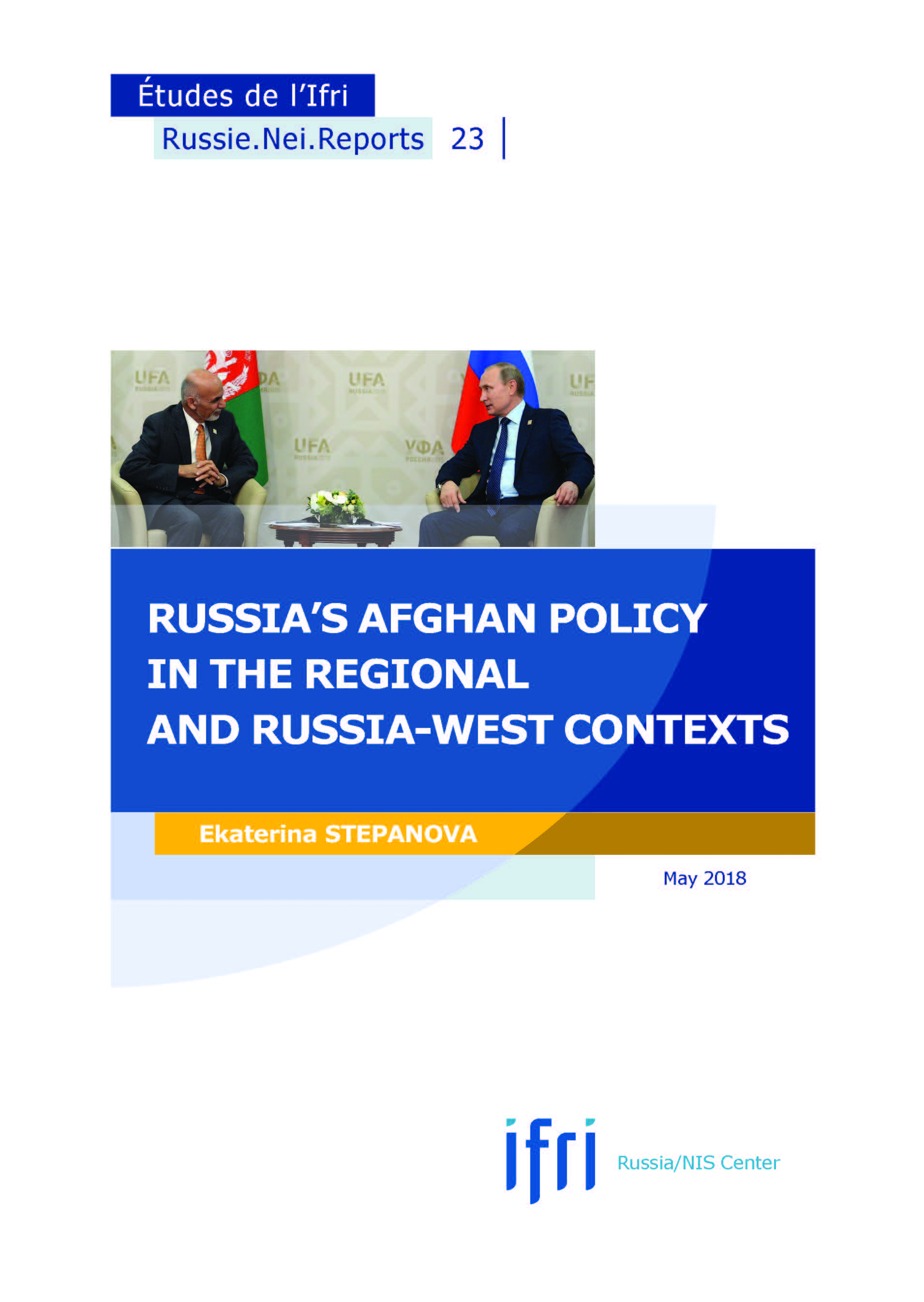Russia’s Afghan Policy in the Regional and Russia-West Contexts

This report seeks to explain the main trends in Russia’s evolving Afghanistan policy, with the focus on its regionalization, diversification, and new emphasis on diplomacy that culminated in Moscow regional peace consultations. It argues that none of Russia’s Afghanistan-related concerns can be alleviated as long as the armed conflict there continues in full force. This makes Moscow genuinely interested in stabilization.
However, the mere combination of military pressure against the Taliban and Western support of the Afghan government cannot achieve stabilization. As Russia remains severely constrained on any hard-security track and has limited leverage inside Afghanistan, there is little it can do apart from pushing for a regionally inclusive political process and supporting, within its capacity, anti-Islamic State of Iraq and Syria (ISIS) efforts at national, regional and international levels. Both tasks require access to all major regional players, including even limited communication channels with the Taliban. The report explores the effects of the evolving US/NATO factor on Russia’s policy and Moscow’s reaction to the revised US policy on Afghanistan under President Trump. Finally, it looks at how Afghanistan features in the rarely addressed Russia-Europe/EU context and whether there is any potential for cooperation or parallel efforts with similar or compatible goals.
Ekaterina Stepanova heads the Peace and Conflict Studies Unit at the Primakov National Research Institute of the World Economy and International Relations (IMEMO), Moscow.
Download the full analysis
This page contains only a summary of our work. If you would like to have access to all the information from our research on the subject, you can download the full version in PDF format.
Russia’s Afghan Policy in the Regional and Russia-West Contexts
Related centers and programs
Discover our other research centers and programsFind out more
Discover all our analysesDeathonomics: The Social, Political, and Economic Costs of War in Russia
The report attempts to outline and examine a truly new phenomenon in Russian society, dubbed “deathonomics”—the making of a mercenary army against the backdrop of the Kremlin’s war in Ukraine, eventually replacing both the Soviet (conscript) and early new Russian (contract) armies. It notes that, by the end of 2023, this trend had turned the military service into one of the highest-paying professions in the country, something not seen in Russia on such a scale since the late 17th century.
Russia's Asia Strategy: Bolstering the Eagle's Eastern Wing
Among Russia’s strategic priorities, Asia traditionally played a secondary role compared to the West. In the mid-1990s, then Foreign Minister Yevgeny Primakov initiated a rapprochement with China and India. Then, in 2014, deteriorating relations between Russia and the West prompted Moscow to begin its “great pivot to the East”.
Kazakhstan After the Double Shock of 2022: Political, Economic and Military Consequences
The year 2022 represented a dual shock for Kazakhstan. In January, the country faced its most severe political crisis since independence, followed in February by Russia’s full-scale invasion of Ukraine, which cast uncertainty over the borders of post-Soviet states. These consecutive crises profoundly shaped Kazakhstan’s domestic and foreign policy.

How the Russian Army Changed its Concept of War, 1993-2022
The traditional and high-intensity war that has occurred in Ukraine since Russia decided to invade raises a key issue: did post-soviet Russian strategic thought really prepare Russia for waging this war?










